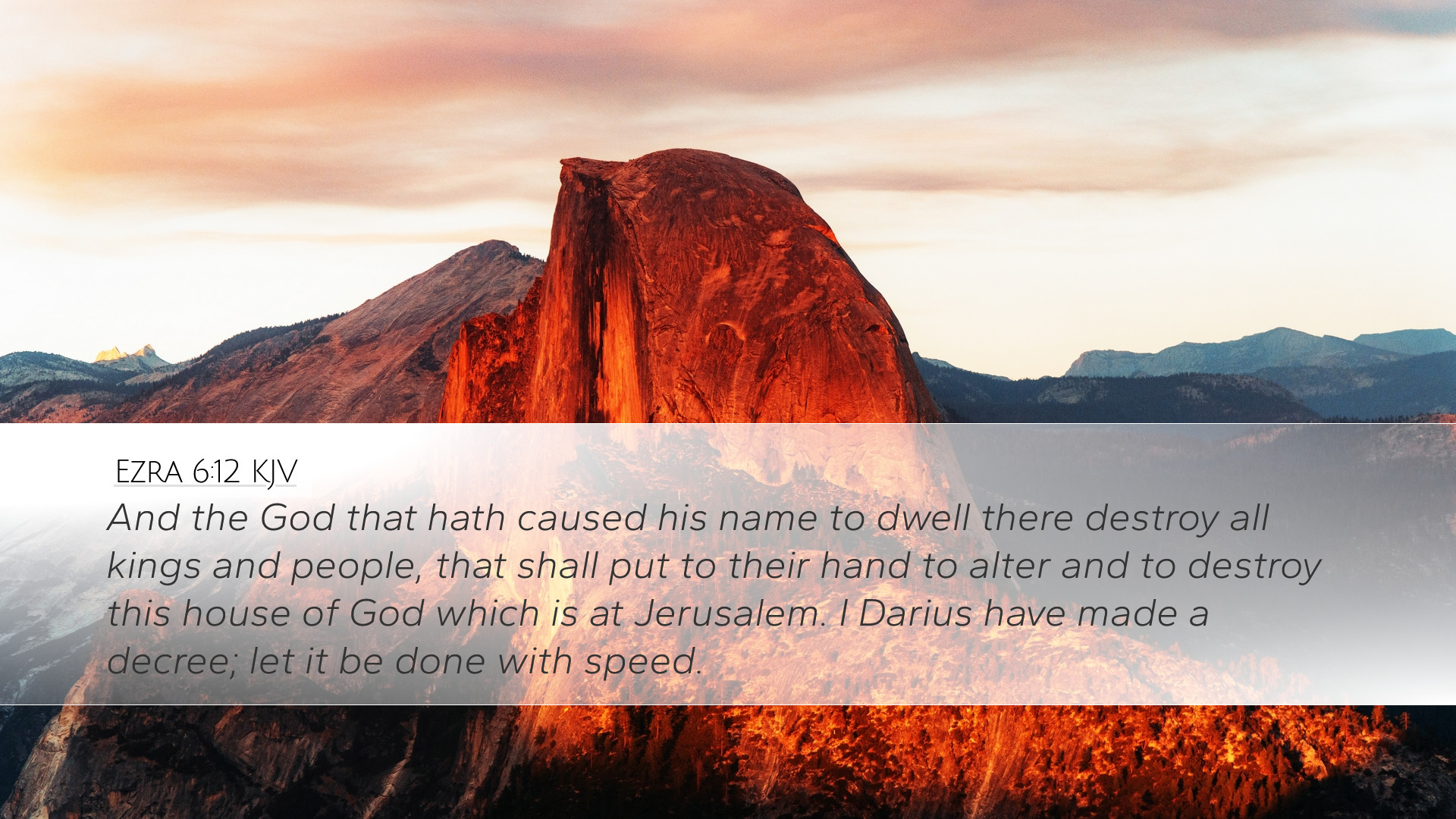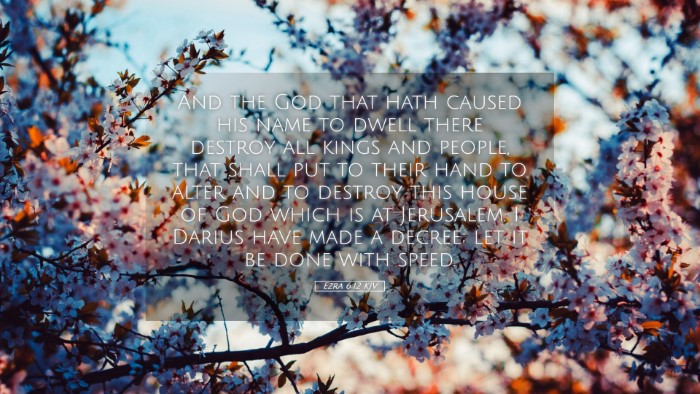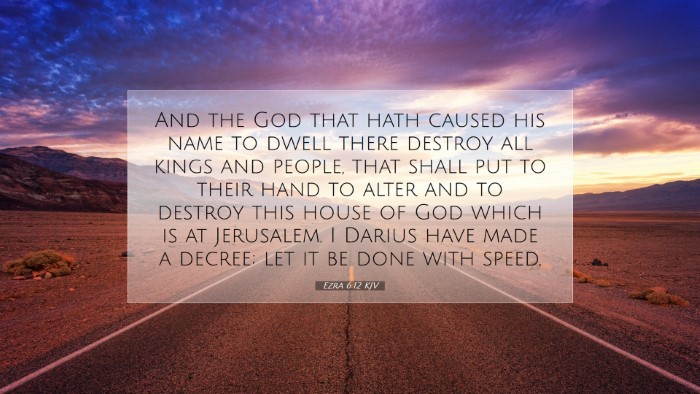Old Testament
Genesis Exodus Leviticus Numbers Deuteronomy Joshua Judges Ruth 1 Samuel 2 Samuel 1 Kings 2 Kings 1 Chronicles 2 Chronicles Ezra Nehemiah Esther Job Psalms Proverbs Ecclesiastes Song of Solomon Isaiah Jeremiah Lamentations Ezekiel Daniel Hosea Joel Amos Obadiah Jonah Micah Nahum Habakkuk Zephaniah Haggai Zechariah MalachiEzra 6:12
Ezra 6:12 KJV
And the God that hath caused his name to dwell there destroy all kings and people, that shall put to their hand to alter and to destroy this house of God which is at Jerusalem. I Darius have made a decree; let it be done with speed.
Ezra 6:12 Bible Commentary
Commentary on Ezra 6:12
Verse: "And the God that hath caused his name to dwell there destroy all kings and people, that shall put to their hand to alter and to destroy this house of God which is at Jerusalem: I Darius have made a decree; let it be done with speed."
Introduction
This significant verse in Ezra encapsulates the resolve of King Darius and the divine backing for the rebuilding of the Jewish temple in Jerusalem. The Lord's sovereignty is highlighted, showing that any opposition to His will carries severe consequences. Such themes resonate deeply with pastors, students, theologians, and scholars who study God's involvement in history and His temple.
Theological Insights
The statement made by Darius reflects a powerful theological assertion about God's presence and the sanctity of the temple. As noted by Matthew Henry, the regulation imposed by God regarding His name dwelling in the temple signifies His choice and ownership of the location. It affirms that God does not dwell in a house made by human hands but has established the temple as a focal point for worship and divine presence.
God's Sovereignty
Albert Barnes emphasizes the sovereignty of God in this decree. The reference to God's ability to destroy kings and people illustrates that any authority opposed to His divine plan is ultimately futile. Pastors can draw upon this affirmation of divine control to underscore God's overarching rule amidst worldly powers. It serves as a reminder that believers can have confidence that God will protect what is aligned with His will.
Consequences of Opposition
The warning implied in Darius's declaration serves as a caution against those who might attempt to obstruct God's work. As the scripture states, anyone who attempts to "alter or destroy" the house of God faces dire repercussions. This reflects the understanding that God defends His sanctuary vigorously, reinforcing the theme of holiness and the divine mandate to protect places of worship.
Historical Context
Understanding the historical backdrop is crucial. After the Babylonian exile, the Jewish people faced significant adversity in rebuilding the temple. The decree by Darius marked a pivotal moment, affirming not just permission, but a divine mandate for the restoration of Jewish worship. Adam Clarke elaborates on this by noting that Darius recognized the importance of the religious and national identity tied to the temple, thereby invoking God’s authority as part of his royal decree.
Applications for Modern Believers
- Divine Assurance: Believers today can take comfort that God actively defends His purposes. Churches and ministries should heed this assurance in their endeavors.
- Importance of Sacred Spaces: Reflecting on the significance of the temple encourages modern congregations to value places of worship as vital connections to God.
- Courage in Adversity: The resolve shown by Darius can inspire leaders within the church to stand firm against opposition, trusting God's sovereign will even in challenging circumstances.
Conclusion
Ezra 6:12 serves as a potent reminder of God's presence, authority, and the significance of places set apart for worship. The powerful declaration by Darius resonates through the ages, offering deep insights into God’s sovereignty, the sanctity of worship, and the clashing of divine purpose against human opposition. As congregations reflect on this message, they are encouraged to recognize and uphold the importance of their worship spaces as well as their confidence in God’s protection and guidance.


